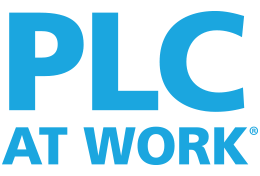DEMOGRAPHICS
Camden Fairview High School is located in Camden, Arkansas, in Ouachita County. The city resides in the south-central part of Arkansas. Home to the Cardinals, CFHS is a part of Camden Fairview School District, serving grades 9–12.
689 Students
- 12% Special education
- 2% English learners
- 100% Eligible for free or reduced lunch
Camden Fairview High School's CHALLENGE
Long before Cara Bowie became the principal of Camden Fairview High School, she was a teacher and a student at the school. She's been passionate about improving the halls of CFHS ever since. When Bowie took over, she immediately knew what actionable steps were needed.
The teachers at CFHS were isolated, working and operating independently without the structure of a team or methods to lead their students to success. Teachers even gave different student assessments, so learning was evaluated with different measures for each classroom.
Team faculty meetings were not collaborative and many teachers were resistant to change. Bowie knew changing the mindset of her teachers would be the first step in making improvements at CFHS.
IMPLEMENTATION
When Bowie arrived at CFHS, the school was in its second year of funding from the Arkansas Department of Education Professional Development Project Grant.
Bowie quickly jumped into gear to ensure all teams began collaborating, essential standards were unpacked, and the staff at CFHS became well-versed in the Professional Learning Communities (PLC) at Work® process. The grant helped the team focus on answering the four critical questions of a PLC.
New and veteran teachers opened up to the change the PLC process provided. Faculty meetings became more productive, allowing teacher teams to form and create discussions about analyzing student data and setting learning goals. Principal Bowie took a hands-on approach to her work with the teachers, attending workshops with them and learning alongside them.
- What do we want our students to know and be able to do?
- How will we know when they have learned it?
- What will we do when they haven’t learned it?
- What will we do when they already know it?
The team at CFHS then shifted their focus toward assessment, analyzing their evaluations, incorporating intervention, and providing enrichment.
Teachers would prioritize a 30-minute intervention block called Cardinal Academy which, allowed them to analyze their data and then intervene where needed. They kept their focus on the right work through the Response to Intervention (RTI) at Work™ process.
“We know that we have to inspect what we expect. And so we're going to be in those intervention classes, trying to make sure that instructions are being delivered and learning is happening for all,” Bowie said.
“I am very proud of the teachers here because they took something that they knew very little about and not only started to trust the process but became part of the process, instead of trying to pick it apart and continuing to stay isolated or resist change.”
RESULTS
By the end of Camden Fairview High School’s second year under the Arkansas grant, tremendous progress had been made. Teacher collaboration was in full effect and Principal Bowie was able to move learning forward.
When the third year came around, the students and teachers were making strides. The CFHS community was now built on a PLC at Work process. The teachers and administrators at CFHS knew that strong relationships with students were essential for learning. They made sure to get to know each student individually and provide them with the support they needed.
Major improvements:
- Through Cardinal Academy, CFHS’s intervention block, English scores improved drastically.
- The school achieved its highest graduation rate of 91%.
- Readiness in reading scores increased from 12% to 17% after implementation began.
- Behavior issues decreased by 14%.
Met Readiness Benchmark in Reading
Graduation Rate
WHY PLC AT WORK®?
Professional learning communities (PLCs) are schools that empower educators to work collaboratively in recurring cycles of collective inquiry and action research to achieve better results for the students they serve.

